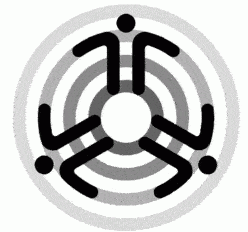The Interception of Communications Bill 2010 was introduced in the Trinidad and Tobago Parliament on November 12, 2010 in the House of Representatives by the Minister of National Security, Senator Brigadier John Sandy.
The Bill seeks to "provide for and about the interception of communications, the acquisition and disclosure of data relating to communications, the acquisition of the means by which electronic data protected by encryption or passwords may be decrypted or accessed and other related matters." From the text of The Interception of Communications Bill 2010 :This Bill seeks to provide the legal framework within which public or private communications, which are being transmitted by means of a public or private telecommunications network, can be lawfully intercepted. An interception of communication is lawfully done only when it is done pursuant to a warrant issued by a Judge on an application by an authorized officer. Consequently, it is an offence for a person intentionally to intercept a communication being transmitted without an order of the Court. In general, a warrant would be issued only to investigate, prevent or detect a specified offence, and would be valid for an initial period of ninety days, but may be extended by the Court for two further periods, each for ninety days. The Bill also makes provision for an oral application for a warrant in urgent circumstances, subject to certain safeguards. Finally, the Bill provides that the content of a communication or communication data, which is lawfully obtained, is admissible as evidence in any criminal proceedings.
Download/read The Interception of Communications Bill 2010 at http://www.ttparliament.org/legislations/b2010h22.pdf (PDF ; 212K ; 34 pages)
- Statement by the Hon. Kamla Persad-Bissessar, Prime Minister of Trinidad and Tobago in the House of Representatives on the Interception of Communications : http://www.news.gov.tt/index.php?news=6004
- Friday November 12, 2010 Newsday newspaper : http://newsday.co.tt/news/0,130655.html ; http://newsday.co.tt/news/0,130656.html
- Saturday November 13 2010 : Newsday newspaper : http://www.newsday.co.tt/news/0,130735.html ; http://www.newsday.co.tt/archives/2010-11-13.html
- The Interception of Communications Bill 2010 (via Google Docs viewer)

